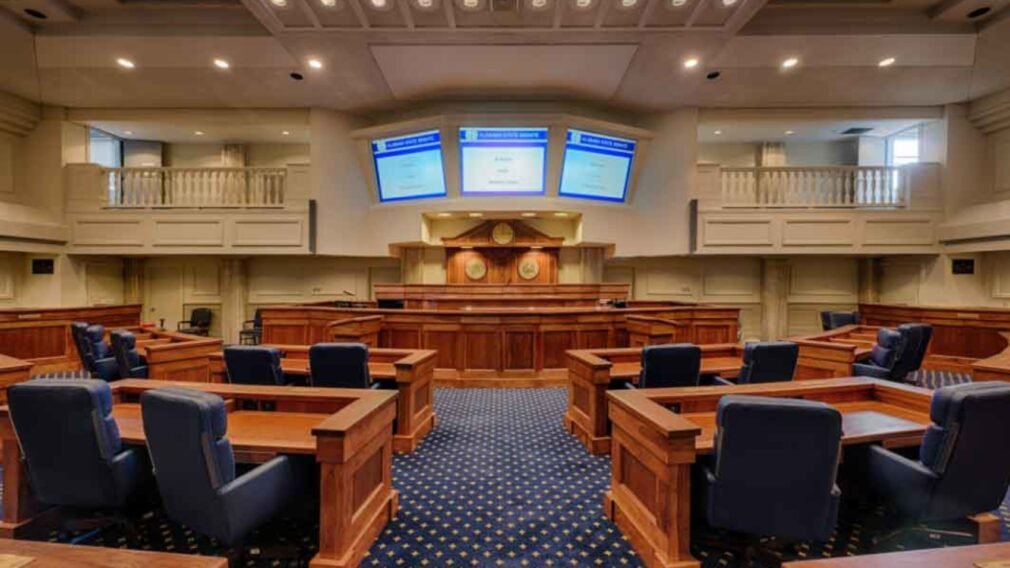Alabama’s Gambling Bill Faces Challenges in Senate
A gambling bill that had previously sailed through the Alabama House of Representatives with the support of Governor Kay Ivey has encountered substantial obstacles following amendments by the Senate.

These changes have dramatically altered the bill’s scope, leading to intense negotiations in a conference committee.
Original Bill Versus Senate Revisions
The original legislation advocated by the House included the introduction of a statewide education lottery, the issuance of up to 10 casino licenses, provisions for sports wagering, and the creation of a gambling commission to address illegal gaming activities.
However, the Senate’s version stripped away major components such as full casino gambling and sports betting, significantly reducing the projected annual revenue from $1.2 billion to $500 million.
Conference Committee Negotiations
The conference committee, consisting of House members Chris Blackshear, Andy Whitt, and Sam Jones, along with Senate members Greg Albritton, Bobby Singleton, and Garlan Gudger, is tasked with reconciling these stark differences.
The committee’s challenge is to forge a compromise that adheres to Alabama’s conservative gaming laws while securing bipartisan support.
A major point of contention remains the allocation of generated revenues. The House version favors significant educational investments, such as free community college tuition. In contrast, the Senate suggests an equitable distribution among the general fund, infrastructure projects, and educational initiatives.
Leadership’s Commitment and Hopes for Compromise
House Speaker Nathaniel Ledbetter has reiterated the House’s commitment to eliminating illegal gaming and maximizing the educational benefits from lottery revenues. “The people of Alabama deserve a say on this issue,” Ledbetter stated, expressing optimism for a public vote on the compromise bill.
As negotiations continue, the outcome remains uncertain but critical, as it will determine the future of gambling regulations in Alabama and potentially unlock substantial economic benefits.
Senators like Albritton express uncertainty about reaching a satisfying compromise, while Singleton remains hopeful for a resolution that might not be ideal but could still succeed in a public vote.
Recommended
